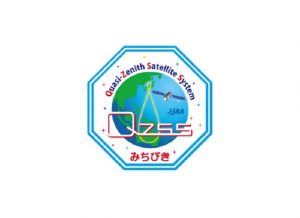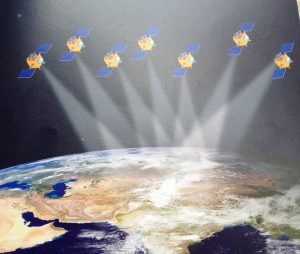In this article, we give you 5 best GPS Alternatives For Next Generation Navigation. GPS has grown the de-facto medium and almost synonymous with the Global-satellite navigation system(GNSS). Part of the cause is that GPS is the oldest navigation system. It was begun in 1978 by the US Defense. Nevertheless, there are other navigation systems also like GLONASS, BeiDou, Galileo, Quasi-Zenith, and the recently announced NavIC by India. So in this article, we take a glance at all the GPS alternatives in great detail and compare them point by point. We have talked about the coverage, orbital height, accuracy, and many other things that define a satellite navigation system. Now without further ado, let’s go over the list of GPS alternatives.
Top GPS Alternatives in 2021
1. Galileo

Since major countries had their satellite navigation systems, the European Union decided to develop its indigenous GNSS. They began the development in 2005, and finally, in 2016, the Galileo constellation was live. Galileo is a global-navigation satellite system just like GLONASS and GPS. As of now, the constellation possesses 22 operational satellites rotating around the Earth. EU is further trying to increase the satellite numbers to 30 by the end of this year.
In terms of working mechanism, Galileo and GPS are almost on the same plane but slightly higher in altitude. Having stated that, Galileo has suffered some problems with Atomic clocks and weak signals in the past few years, so there is that. To sum up, Galileo is another global-navigation satellite system that will get better after it reached Full Operational Capability (FOC) in 2020. Thereafter, it will become a reliable alternative to GPS.
2. GLONASS

If there is 1 satellite navigation system that comes close to GPS in terms of coverage and accuracy, it’s GLONASS. It is developed and run by Russia and has been in operation since 1995. GLONASS possesses a constellation of 24 satellites in comparison to GPS’ 31 satellites. For a global-navigation satellite system to work, you need more than 20 satellites, and Russia has maintained the constellation since 2010.
Aside from that, both GLONASS and GPS have almost the same orbital height and period, so, in some sense, both are somewhat the same. As for the accuracy, GLONASS possesses a location precision of 5-10 meters which is excellent and very similar to GPS 4-7 meters. Of course, the location becomes much better with the aid of local cellular triangulation. All-in-all, GLONASS is a capable satellite navigation system by Russia, and it’s second only to GPS.
3. Quasi-Zenith

The (QZSS) Quasi-Zenith Satellite System is a regional satellite navigation system developed by Japan, and it is very similar to India’s NavIC. QZSS is further called Michibiki in the Japanese language, and it has a constellation of 4 satellites. Japan began the project in 2010 and rolled out the service for public use in 2018. Similar to GPS, the purpose of Quasi-Zenith is to produce highly precise and stable positioning services in Japan & parts of the Asia-Oceania region. While Japan has seen slow growth of its satellite navigation system, they are dedicated to launching 7 more satellites by 2023.
And similar to NavIC, QZSS follows the same principle of ‘direct line of sight at all times’ in sync with Japan’s coordinates. It has deployed its satellites in both geosynchronous and geostationary orbit to ensure that at least one of the satellites is visible over Japan at all times. Thus to conclude, Japan’s QZSS is nowhere near the US’ GPS, but it holds a lot of promise, and we hope for a bigger expansion shortly.
4. NavIC

While NavIC is pretty new in the realms of satellite navigation systems, it’s nonetheless very promising. NavIC, in case you do not know, is an indigenous satellite navigation system built by India for its region and adjoining neighbors. Anyway, unlike GPS, which is a global-navigation satellite system, NavIC, on the other hand, is a regional navigation satellite system.
Essentially, it suggests that GPS covers the whole world for location positioning, whereas NavIC covers India and some neighboring regions primarily. Having stated that, NavIC is relatively better than GPS in terms of accuracy, at least in India, because the NavIC satellites are always in direct line of sight with India’s region. Thus, to sum up, NavIC is an Indian autonomous satellite navigation system, and it seems a better alternative than GPS. Further, India is going to launch at least 5 more satellites in the coming years, so that is great.
5. BeiDou

BeiDou is a global-navigation satellite system similar to GPS, and China runs it. The project was 1st launched in the year 2000 to develop a GPS alternative for its users. Nevertheless, the number of satellites was only 2, so the coverage was extremely limited, and accuracy was off the mark. In 2012 and 2015, China subsequently launched 10 and 15 satellites into the Earth’s orbit, making the constellation much larger.
And post-2015, China has sent seven more satellites taking the constellation to 33 operational satellites. Therefore in terms of coverage, BeiDou is almost neck and neck with US’ GPS. Aside from that, the accuracy is said to be 3-5 meters which is excellent and can also provide 10cm of location precision, but that’s restricted for military use. All I can state is, BeiDou is as good as GPS and a potential alternative to GPS without any doubt.
The Best GPS Alternative Systems
Those are the five GPS alternatives that have been developed by Russia, India, China, European Union, and Japan. As I stated above, only a handful of countries have invested in building their indigenous satellite navigation systems, and it’s mainly for self-dependency during aerial attacks, submarine, and terrestrial war. 1 more thing to note here is that users cannot choose which GNSS system they can use. It all depends on the mobile phone hardware and navigation apps that they are using. So, keep that in thought. Well, that is all from us. Hope you enjoy our article, Let us know your viewpoints in the comments section below.
















